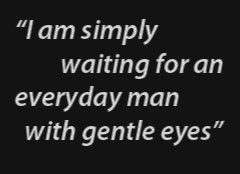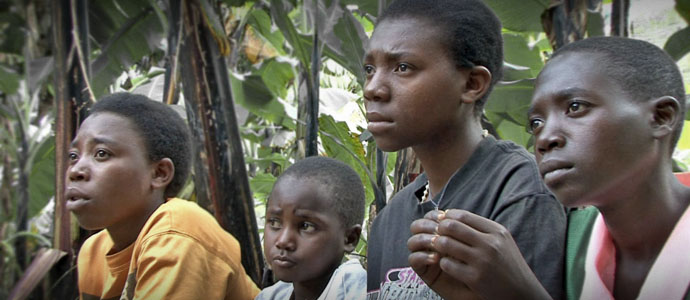Encounters with conflict and peace
No longer interested in life
“My wife is dead, I have lost my family, except for two children. I used to have six cows, ten goats, thirty hens. Now my pen is empty.
Of the nine teachers at the school, six were killed, two are in prison... I am remarried with one of my wife's little sisters; but I lead a life of no interest to me anymore.
At night, I go through a life all too peopled with the many dead of my family, who as killed folk talk amongst themselves, and who ignore me and do not even look at me anymore. During the day, the pain of solitude is of another kind.” (Jean-Baptiste Munyankore, school teacher)

Social networks were broken, closeness and trust were replaced with isolation and suspicion. So for many Rwandans, rebuilding family connections and friendships with neighbours has been a high priority, and is helping to ease the pain of all the things they have lost.
But the genocide affected everyone differently, and the best efforts at helping people recover are sensitive to that. They involve listening, learning and understanding individual needs.

I hear candidates knocking on the door and introducing themselves wearing brushed shoes, but I see no one who could provide me with tenderness.”
Finding a reason to live
For some, the first hurdle is just finding a reason to live. “You feel like you are not OK - you want to die. But then you think, ‘I have to do something to be OK,’ and you start seeing reasons why you have to live,” said Josephine. “You start thinking of your children, for example, and say, ‘ah, despite everything, I have to live for my children.”
Finding a reason to live doesn’t take away the hurt or solve all your problems, but in terms of healing the mind damage, it’s a significant step forward.
The children

Most of the children alive during the genocide witnessed extreme violence and were severely traumatised. UNICEF estimates that around 300,000 children were killed and that about 95,000 became orphans.

Annet, who worked with the children for several years, said, “they taught me innocence. They’re able to forgive each other - to embrace each other. In their play and songs and dancing they always show how the adults were a barrier to them building good friendships - and I believe that was true.”
Related pages
The children
AFTERMATHThe BBC journalist Fergal Keane visited an orphanage in the mountains of northern Rwanda during the last days of the genocide. "We are trying to teach them to trust the world again, but it is very, very difficult." more
< previous page | next page >
In this section
AN EXPERIMENT IN RECOVERY
Back from the edge
Experiment in recovery
A new Rwanda
JUSTICE
An overloaded system
The importance of justice
Teaching gacaca
Confronting the past
Soft justice?
Has gacaca delivered justice?
PEOPLE WHO KILLED
Helping killers
Sorry
MIND DAMAGE
Recovering from genocide
Living with the pain
Obstacles
Where does it hurt?
BUILDING PEACE
Breaking the cycle
Building peace

Back from the edge
Experiment in recovery
A new Rwanda
JUSTICE
An overloaded system
The importance of justice
Teaching gacaca
Confronting the past
Soft justice?
Has gacaca delivered justice?
PEOPLE WHO KILLED
Helping killers
Sorry
MIND DAMAGE
Recovering from genocide
Living with the pain
Obstacles
Where does it hurt?
BUILDING PEACE
Breaking the cycle
Building peace

